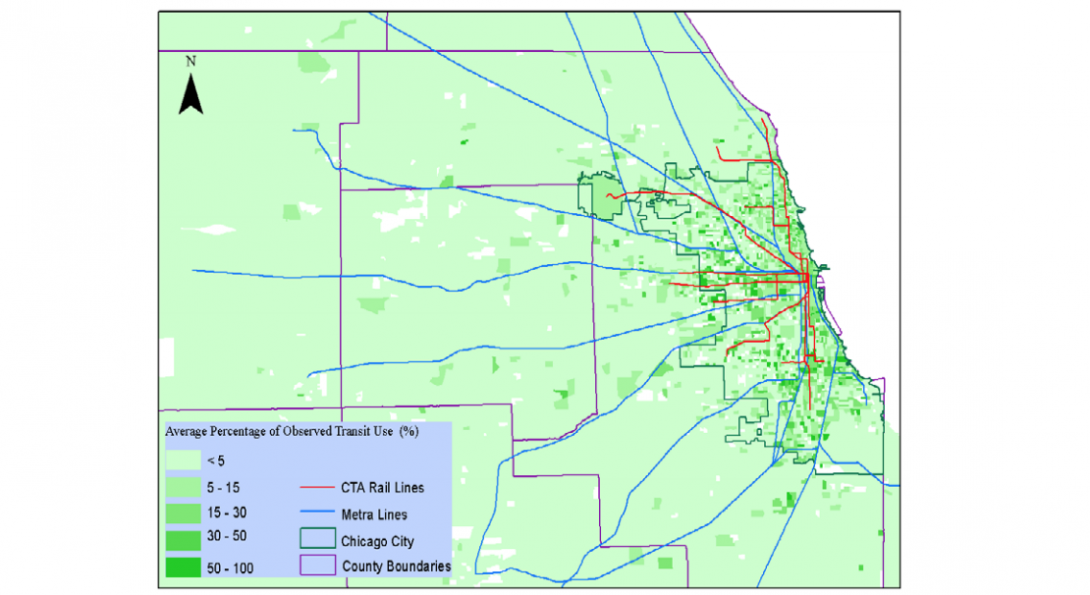New Mode Choice Model Gives Transportation Agencies Tool to Make More Informed Planning Decisions

Travel Demand Study of Metropolitan Chicago Employed Digital Maps to Increase Accuracy
Planners at Chicago area transportation agencies can now employ a state-of-the-art tool to support more accurate forecasting and policy analysis of the way people make decisions on trips from home to various destinations within their community.
The transportation mode choice model was built upon a microsimulation based framework. Through this process, researchers can combine individuals in a study region in order to simulate activities and keep track of transportation options based upon a person’s location. When applied, the model would reveal why people selected a particular transportation mode and let planners predict the number of shares of each mode under various transportation-related policies.
The modeling project is detailed in a report, “Mode Choice Modelling Using Personalized Travel Time and Cost Data,” produced by researchers affiliated with the Urban Transportation Center at the University of Illinois at Chicago. As stated in the report: “With a focus on transit, the study reveals how transit alternatives are limited/unavailable in certain areas which must be taken in to account in our mode choice models.”
Researchers analyzed more than 170,000 trips taken by people from 14,000 households who used auto, transit, cycling and walking modes of transportation. The travel data was collected through the CMAP Travel Tracker Survey conducted by the Chicago Metropolitan Agency for Planning (CMAP) from people within eight counties surrounding Chicago.
The model developed stands apart from other transportation models because researchers incorporated point-to-point data from Google and Bing maps for travel time information during all trips reported in travel survey. This data was used to make the model estimation more accurate.
The report offers some conclusions on transit choices based upon the trips studied. For example, alternative modes of travel are not available to travelers for many trips studied. Reasons identified include: A lack of transit stops or stations close to the origin or destination, and a lack of transit service during the time of the trip.
Dr. Kouros Mohammadian, Ramin Shabanpour Anbarani, Mahmoud Javanmardi and Mehran F. Langerudi, researchers at the UIC Department of Civil and Materials Engineering, prepared the report, which was funded through the Illinois Department of Transportation.
Visit this page to read an abstract and download the complete report.